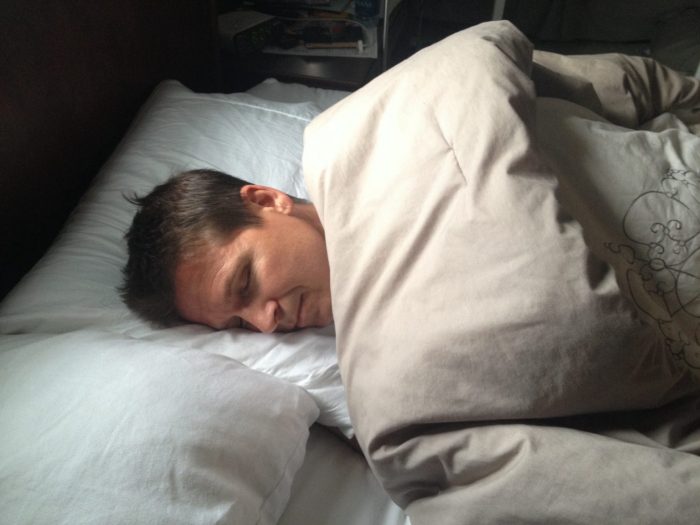Do you have Insomnia? Here are 20 Tips to Help you Sleep like a Baby
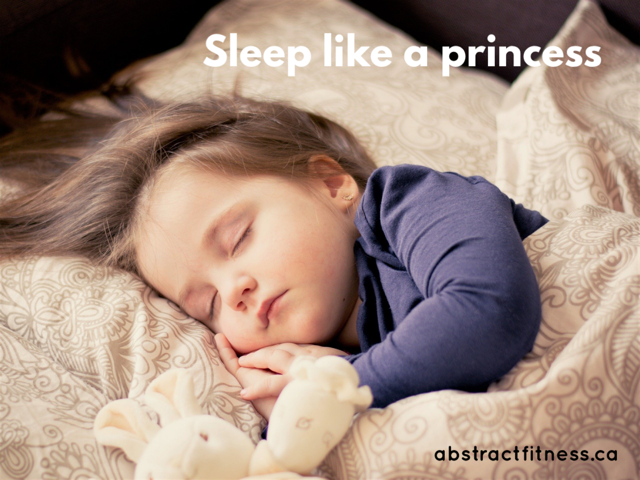
Do you have difficulty falling asleep even if you are tired? Do you wake up at night and have difficulty going back to sleep or do you wake up too early in the morning? Insomnia is a sleep disorder which can cause health problems, but it also can reduce quality of life, mentally and physically. Statistics Canada reported that 25% of Canadians are unsatisfied with their sleep and 54% report one or more symptoms of insomnia. It recently revealed that 46.6% of men and 69.9% of women have been diagnosed with insomnia. Do you think you have insomnia? Take the free quizzes: Columbus Sleep Consultants or Sleep Health Solutions
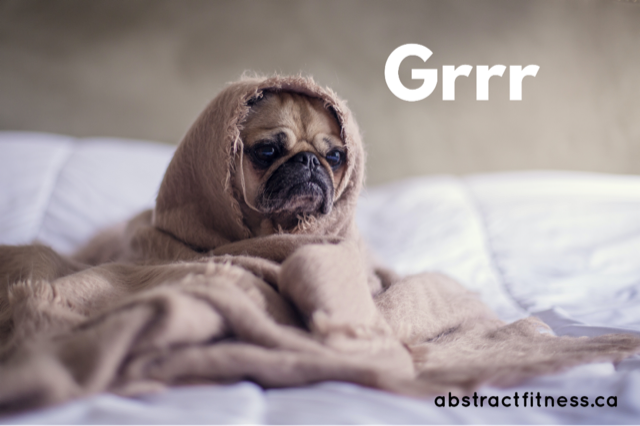
What might cause bad sleep or insomnia?
Do you remember my latest blog last week about the 12 tips to beat the winter blues? We have talked about how melatonin is important in sleep quality. When production of melatonin is reduced, it can affect sleep patterns and lead to insomnia. Here are some of the things that can affect your sleep patterns. These include:
- Consumption of caffeine beverages, alcohol, and chocolate
- Hormone changes in women (menstruation, pregnancy, pre-menopause, menopause). 31 to 42% of women develop chronic insomnia by the end of menopause
- Shift work or travel (jet lag)
- Aging: change in medications, physical activities, in sleep patterns, and health
- Stress, anxiety, depression, PTSD
- Health problems: chronic pain, fibromyalgia, cancer, Alzheimer’s, Parkinson’s Disease, menopause, diabetes, heart disease, and asthma
- Restless leg syndrome (more common in women and increases with age)
- Sleep apnea
- Bright light on before bedtime
- Blue light from TVs, computer or phone screens before bedtime or in bed
- We think too much!

Insomnia and health effects:
Lack of sleep and insomnia can affect with glucose intolerance, insulin resistance, reduced acute insulin response to glucose, and increased hunger signals. So, people are more at risk of developing type 2 diabetes, obesity, hypertension, heart disease, stroke, cancer, and depression if they are experiencing insomnia.
What can you do to reduce your insomnia and increase your sleep quality?

- Exercise, move, exercise and move! Seriously, physical activity helps a lot with sleep quality. I even did a graph with one of my 78 year-old clients to show him how his sleep could be improved with daily exercise sessions. It was an eye opener for him. So, try to do 20-30 minutes of exercise as early in your day as you can. Late workouts increase adrenaline and that may interfere with your sleep.
- Ask your health care provider about melatonin and magnesium supplements. Consult with your pharmacist to make sure that any of those supplements do not interfere with your medications.
- Try daily meditation, prayer, and listen to peaceful music. Find good meditation and relaxing music on YouTube.

- Stop watching the clock at night. It increases anxiety and destress about being awake.
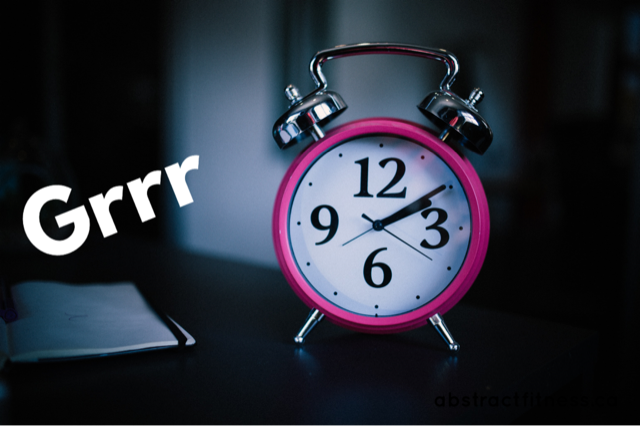
- Do some gentle stretches on a mat to enhance relaxation. Get my 8 days Yoga Stretch here.
- Avoid caffeine, alcohol and chocolate (snif…) after 12 pm. Instead, drink chamomile or passion flower tea. Statistics Canada reports that 5% of Canadians use alcohol to self-treat insomnia. Unfortunately, it has a paradoxical effect such as increasing anxiety, worsening insomnia, and decreasing sleep quality.
- Unplug and unwind: avoid use any types of electronics including TV, computer and phones 1 hour before bedtime. Instead of reading on a tablet, go back to the old way by reading paper books. Choose boring ones that will put you asleep. If the story is too good, you might keep reading all night!
- Create a sleep routine: go to bed and wake up at the same time, even on weekends and days off. Try to get between seven to eight hours of sleep.
- Shut off some lights: 1 hour before bedtime to help with the natural production of melatonin. Or ask Alexa or Google to do it for you!
- Shut off Wi-Fi at night. I have a timer on mine and it is off from 11 pm to 6:30 am. Who needs Wi-Fi when we sleep? Wi-Fi can interfere on sleep quality. Read more here: How Wi-Fi Affects Your Sleep & 10 Tips to Beat It.
- Your bedroom should be your sanctuary: good mattress, comfortable room temperature, dark, quiet, and choose your favorite pillow.
- Dr. Walia says, if after 20 minutes you are still unable to fall asleep, get up and leave your bedroom. She doesn’t want you to associate bedroom with bad sleep. Don’t turn on the tv! Just sit on the couch and count sheep or try some deep breathing exercises or meditation.
- Avoid big meals late at night. After eating, standing, walking and gravity are your best friends. Eating late before bed might create acid reflux. Instead, have a light snack to stabilize your glucose level all night.
- Have a bath with Epson salt (high in magnesium) to relax your muscles and avoid cramps at night. If you don’t like the idea of a bath, you can sit on your couch and soak your feet in Epson salt with some drops of lavender essential oil. You can also place some drops on your pillow to help you relax.
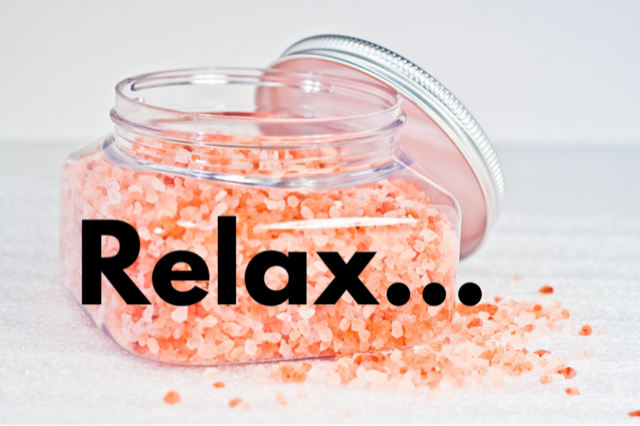
- Keep your feet up! Liquid produced by digestion goes to legs. Use a pillow under or between your knees and keep them higher to avoid mid-night bathroom breaks!
- Dr. Brazil suggests to avoid napping after 4 pm. If you need a nap, 30 minutes should be enough to recharge your battery without interrupting your sleep.
- Go to bed with happy thoughts and gratitude. I write a minimum of 3 gratitudes in my journal almost every night:)
- Don’t go to bed angry, instead practice forgiveness and communication.
- Avoid drinking too much in the evening. I don’t think I need to explain why!!
- Like my father always told me when I was young: “Think less, sleep better”.
Good sleep is crucial to function properly during the day. It helps with productivity, concentration, anxiety, stress, mood, healthy weight, to be healthier (less sick), and avoid injuries. Quality sleep also helps to look younger! Night, night:)
